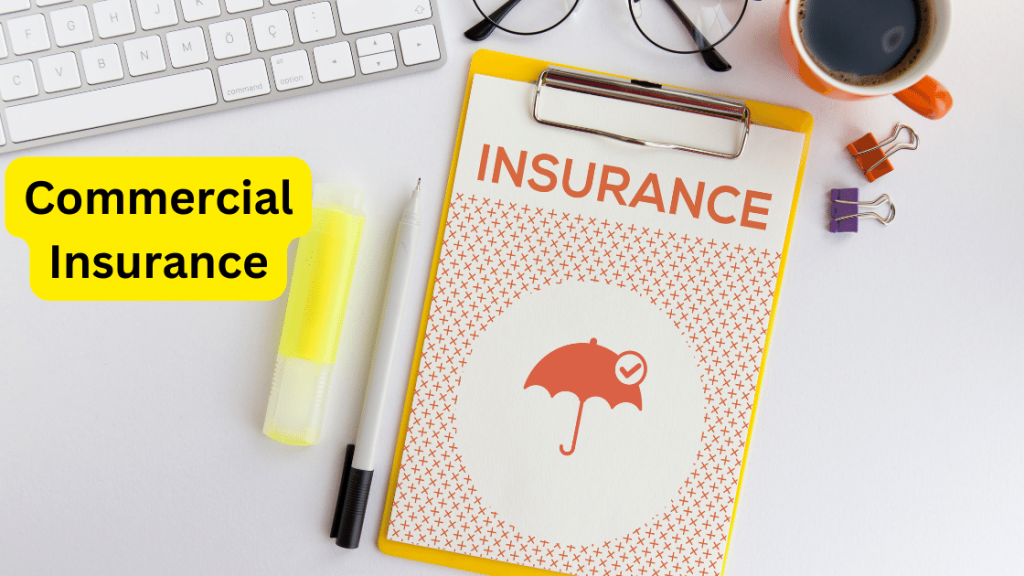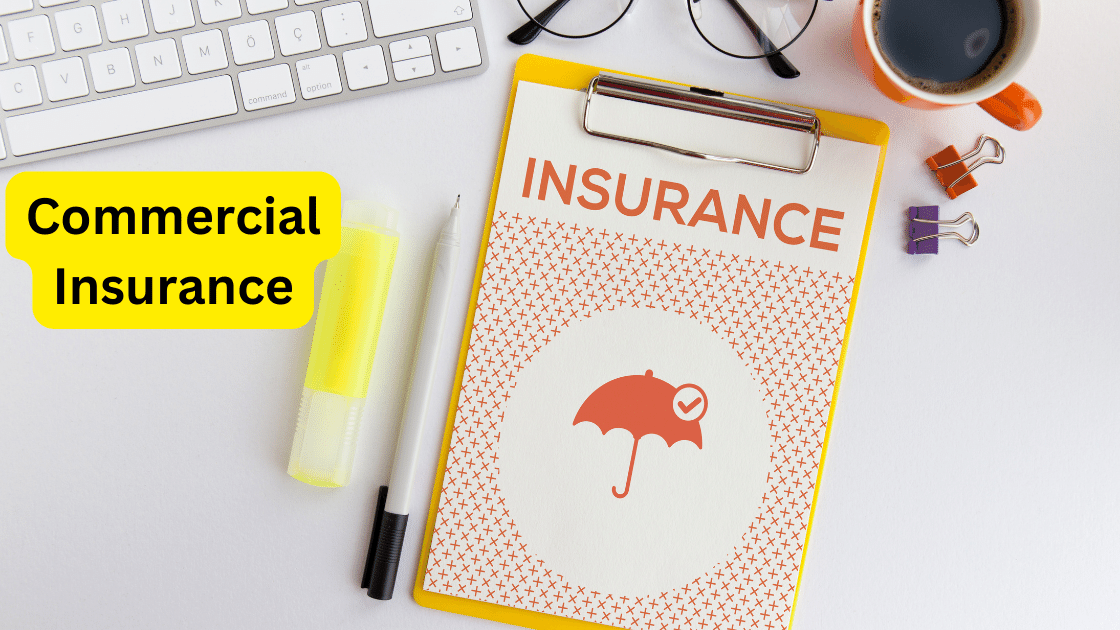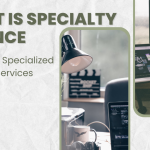Commercial Insurance: Hauling Your Business Toward Success
Commercial Insurance: Running a business is like navigating a winding road, full of opportunities and challenges. Just as a skilled driver ensures a safe journey with the right insurance coverage, a savvy business owner secures their venture’s success with commercial insurance. In this article, we’ll delve into the world of commercial insurance, exploring its significance in steering your business toward success.
Understanding Commercial Insurance
Commercial insurance serves as a protective shield for your business against unexpected risks and uncertainties. Unlike personal insurance, which covers individuals and families, commercial insurance is tailored to safeguard businesses of all sizes across various industries. It encompasses a range of coverage types, each designed to address specific aspects of a business’s operations.
From property insurance that guards against damage to physical assets, to liability insurance that shields your business from legal claims, and even workers’ compensation insurance that supports employees in case of on-the-job injuries, commercial insurance offers a comprehensive safety net.
The Role of Commercial Insurance in Business Success
Imagine your business as a hauler truck on a bustling highway. As you navigate through the business landscape, there are numerous obstacles and challenges that could potentially derail your progress. This is where commercial insurance steps in, acting as the robust towing vehicle that keeps your business moving forward.
- Risk Mitigation and Uncertainty Management: Every business faces risks, be it from property damage, employee accidents, or legal claims. Commercial insurance provides the means to manage these risks effectively, reducing the impact of unforeseen events on your business’s bottom line.
- Financial Protection: Without adequate insurance, a single catastrophic event could cripple your business financially. With the right coverage in place, you can rest assured that your financial investments are protected, ensuring your business’s sustainability.
- Operational Resilience: Businesses that weather storms successfully often credit their resilience to a well-structured insurance portfolio. The ability to recover from setbacks quickly is a hallmark of a successful business, and commercial insurance facilitates this resilience.
Tailoring Insurance to Business Needs
Just as different hauler trucks have distinct capacities and capabilities, every business has unique risks and requirements. One of the strengths of commercial insurance is its adaptability. Insurance providers offer customizable policies that can be made to suit the specific needs of your industry, business size, and operations.
By conducting a proper risk assessment, you can identify potential vulnerabilities within your business. Whether you run a small retail shop, a tech startup, or a manufacturing facility, understanding your specific risks enables you to choose the right combination of coverage types. Insurance agents or brokers can be invaluable partners in this process, offering expert guidance to ensure your insurance portfolio aligns with your business goals.

Avoiding Legal and Regulatory Issues
Navigating the labyrinth of legal and regulatory requirements can be daunting for any business owner. However, certain industries have mandatory insurance requirements that must be met to operate legally. For example, workers’ compensation insurance is often compulsry to protect employees in the case of job-related injuries. Failure to comply with these requirements may result to hefty fines or even legal action against your business.
Commercial insurance not only helps you meet these obligations but also shields your business from potential legal disputes. By having the appropriate insurance coverage in place, you demonstrate your commitment to operating within the bounds of the law, fostering trust among customers, employees, and stakeholders.
Business Continuity and Disaster Recovery
Picture a hauler truck that endures a sudden breakdown on the road. It’s not just the truck that’s affected; the entire operation grinds to a halt. Similarly, when unforeseen events such as natural disasters, accidents, or fires strike, your business’s operations can come to a standstill.
Commercial insurance steps in to prevent such disruptions from becoming fatal blows to your business. Policies covering property damage and business interruption provide the financial support needed to repair or replace damaged assets and cover lost income during downtime. This ensures that your business can get back on its feet swiftly, maintaining continuity and safeguarding your hard-earned reputation.
Evaluating Insurance Providers
Selecting the right insurance provider is a critical decision that impacts the effectiveness of your coverage. When choosing a provider, consider factors beyond just the premium cost. Look for insurers with a strong financial track record and positive customer reviews. A reliable insurer should have the capacity to honor claims promptly and provide dependable customer support.
Comparing quotes from various providers allows you to strike a balance between affordability and quality. Be sure to read the fine print, understand the coverage limitations, and ask questions to clarify any uncertainties. Remember, your relationship with your insurance provider is a long-term commitment, so choose wisely.
Navigating Claims and Coverage Adjustments
Accidents happen, and when they do, you want the claims process to be as smooth as possible. Knowing how to file a claim and what steps to follow can prevent unnecessary delays and frustrations. Keep thorough records of incidents, gather evidence, and report the claim promptly to your insurer.
Additionally, as your business evolves, your insurance needs may change. Whether you’re expanding, diversifying, or downsizing, it’s essential to review and adjust your coverage accordingly. Regularly reassess your risk profile and consult with your insurance agent to ensure your coverage remains aligned with your business’s current state.
Staying Updated and Adapting
The business landscape is dynamic, with risks and opportunities constantly shifting. As your business grows and changes, so do its insurance needs. Frequently review your insurance coverage to ensure it adequately addresses your evolving risks. Don’t wait for a crisis to discover gaps in your coverage.
Stay informed about the industry trends, regulatory changes, and emerging risks that could impact your business. A proactive approach to insurance helps you stay ahead of potential challenges and positions your business for continued success.
Conclusion
Much like a well-equipped hauler truck that can navigate challenging terrain, commercial insurance equips your business to tackle the ups and downs of entrepreneurship with confidence. From risk mitigation and financial protection to ensuring legal compliance and promoting business continuity, the value of commercial insurance cannot be overstated. By partnering with the right insurance provider and tailoring coverage to your business’s unique needs, you’re not just insuring against losses; you’re hauling your business toward success. So, don’t delay—invest in the right commercial insurance today to secure a brighter tomorrow for your business.
FAQs (Frequently Asked Questions)
1. Why do I need commercial insurance for my business? Commercial insurance provides essential protection against various risks and uncertainties that businesses face. It ensures financial stability by covering property damage, liability claims, and even employee injuries. Without proper coverage, a single incident could have devastating financial consequences for your business.
2. How do I choose the right insurance coverage for my business? Assessing your business’s unique risks is the first step. Consider some factors such as size, industry, location, and operations. Consult with insurance professionals who can help you understand the coverage types you need. Tailor your insurance portfolio to align with your specific requirements.
3. What is the claims process like for commercial insurance? In the event of a covered incident, you’ll need to file a claim with your insurance provider. The process typically involves reporting the incident, providing relevant documentation and evidence, and working with the insurer to assess the damage and determine the payout. It’s important to initiate the claims process promptly and maintain open communication with your insurer.
4. Can I adjust my insurance coverage as my business changes? Absolutely. As your business evolves, your insurance needs may change as well. Frequently review your coverage with your insurance agent to ensure it’s still aligned with your current operations and risk profile. If you’re expanding, adding new products or services, or entering new markets, you might need to adjust your coverage to adequately address these changes.
5. What types of events does commercial insurance typically cover? Commercial insurance can also cover a wide range of events depending on the coverage types you choose. Common events include property damage due to fire, theft, or natural disasters, liability claims resulting from accidents or injuries on your premises, and business interruption due to unforeseen disruptions like power outages or equipment breakdowns.
6. How does commercial insurance impact business continuity? Commercial insurance plays a vital role in maintaining business continuity. In the face of unexpected events, such as a fire damaging your office or a product recall affecting your reputation, insurance helps cover repair costs, lost income, and expenses related to getting your business back on track. This makes sure that your business can continue operating and serving customers even during challenging times.
7. Is commercial insurance required by law? While the requirement for commercial insurance varies by location and industry, certain types of insurance may be legally mandated. For instance, workers’ compensation insurance is mandatory in many places to provide coverage for employees injured on the job. Additionally, if your business involves vehicles, commercial auto insurance is often required.
8. How can I ensure I’m choosing a reputable insurance provider? Research is key when selecting an insurance provider. Look for companies with a solid financial reputation and high customer satisfaction ratings. You can check some online reviews, ask for recommendations from other business owners, and even consult industry associations for guidance.
9. How can I make the most of my insurance coverage? To take advantage of the benefits of your insurance coverage, be proactive in managing risks. Implement safety protocols and risk management strategies to minimize the likelihood of incidents. Frequently review your coverage with your insurance agent to ensure it’s up to date and reflective of your business’s current situation.
10. What are some potential pitfalls to watch out for when dealing with commercial insurance? One common pitfall is underestimating your coverage needs. While it might be tempting to cut costs by opting for minimal coverage, inadequate insurance can lead to substantial losses in the long run. It’s also important to fully understand the terms and conditions of your policies, especially any exclusions or limitations.
11. How often should I review and update my commercial insurance coverage? It’s advisable to review your coverage annually or whenever significant changes occur within your business. This could include changes in operations, business structure, revenue, or expansion into new markets. Regular reviews ensure that your coverage remains relevant and effective.
12. Can I bundle different types of coverage within a single commercial insurance policy? Definately yes, many insurance providers offer the option to bundle different coverage types into a single policy, often referred to as a Business Owners Policy (BOP). Bundling coverage can provide cost savings and streamline the insurance management process, making it easier to manage multiple aspects of your business’s risk.
Conclusion
Navigating the path to business success requires more than just ambition; it demands strategic planning and risk management. Commercial insurance serves as an essential tool to navigate the complex landscape of uncertainties and challenges. By understanding the role of commercial insurance, tailoring coverage to your business’s needs, and staying proactive in managing risks, you’re setting your business on a trajectory toward success.
Whether it’s shielding your business from financial pitfalls, ensuring compliance with legal requirements, or facilitating quick recovery after unforeseen events, commercial insurance is the reliable partner that helps you haul your business through both calm and stormy waters. So, equip yourself with the knowledge, support, and coverage you need to haul your business not just toward success, but through it—ensuring a prosperous journey for years to come.
Also read:
Exploring Nature: Outdoor Summer Activities for Inquisitive Kids
Cool and Healthy Summer Recipes for Kids
Exploring Nature: Outdoor Summer Activities for Inquisitive Kids








